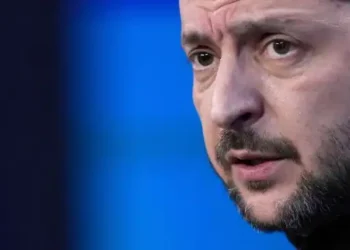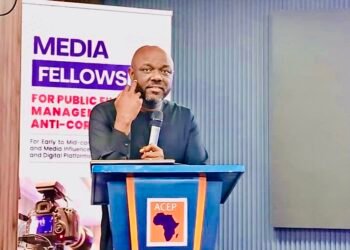Nigerian actor and movie producer Nosa Rex has apologised and clarified comments he made after accusing some Ghanaian television stations of airing his latest movie, ‘Prince of Peace’, without permission.
In a video posted, the actor addressed the backlash that followed his earlier remarks, explaining that his criticism was directed solely at TV stations involved in piracy, not the Ghanaian public.
“I see that so many people are misinterpreting and misunderstanding the video. The insult in that video was directed at the TV stations. I mean, why would I insult the entire Ghana? It doesn’t even make sense. I’m looking forward to coming and seeing you people. You know what that means.”
Nosa Rex
Nosa admitted that his tone stemmed from frustration over the continued problem of piracy, stressing that it undermines creativity and hard work.
“I mean, what I’m fighting for right now will not make sense right now until later. Imagine that a particular person is taking your creativity for free. It means that they don’t value creativity. They don’t value talent, and even you guys in Ghana, this might affect you guys later. If you don’t speak out right now… maybe because of the way I said it, it seems like I’m the bad person. I just want to say shout out to my fans.”
Nosa Rex
He also emphasised that he meant “no disrespect” and has love for his Ghanaian fans.
“It’s not in my nature to disrespect anybody. For those of you who don’t know me, even the ones who pretend that you don’t know me, it’s okay, I just want to say I love all of you. I will not disrespect everybody. If you are in Ghana, don’t speak out for us. How is it gonna happen? You understand? But as they do us, they will still do you guys, the creative ones in Ghana.
“So please speak out, fight for this. Let them stop it. It’s not in my nature to disrespect people. I’m sorry. I love you guys so much. No disrespect intended.”
Nosa Rex

Nosa reiterated in a follow-up statement.
“My insult was to the TV stations in Ghana showing our content for free. I mean no disrespect. This apology was made immediately when the video was misunderstood. I wonder why the blogs are not letting people know. Anyway, it’s all love from this side.”
Nosa Rex
The apology follows a viral video posted, in which Nosa angrily accused Ghanaian TV stations of airing ‘Prince of Peace’ just hours after its release without his consent.
The incident sparked heated discussions on Ghanaian entertainment shows, with some criticising his choice of words while others supported his call for stronger action against piracy.
The episode has once again highlighted calls for stricter enforcement of copyright laws and greater respect for intellectual property in Ghana’s media landscape.
Why This Matters: ‘Piracy’

Nosa Rex’s apology and concerns touch on key issues for the African entertainment sector.
Protecting intellectual property rights to encourage reinvestment in quality content, fostering professional standards for film production and distribution, and supporting Nollywood and Ghanaian cinema growth through proper licensing and broadcasting protocols.
This incident underlines the urgent need for collaboration between creators, distributors, and regulators to ensure fair treatment and mutual respect within the industry.
Following the apology, Nosa Rex has expressed intentions to work with Ghanaian broadcasters to negotiate proper licensing agreements for future films.
He also called on entertainment executives to engage in creative partnerships rather than resort to piracy, urging a shift toward constructive collaboration.
Analysts suggest this could serve as a pivotal moment, encouraging more formal agreements and proactive reform within the Ghanaian broadcast sector.
Nosa Rex’s initial backlash and subsequent apology highlight an important turning point in Afro–Nigerian–Ghanaian media relations—one where disputes over piracy transform into opportunities for understanding and industry advancement.
As Nollywood and Kumawood continue to define global African cinema, clear respect for content rights will be vital for sustainable growth.
READ ALSO: Communications Minister Pushes AI Readiness For Five Ministries, Urges IT Cost Reforms



















